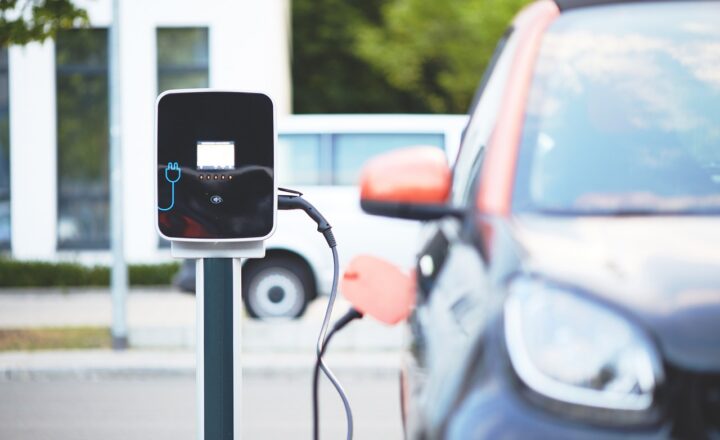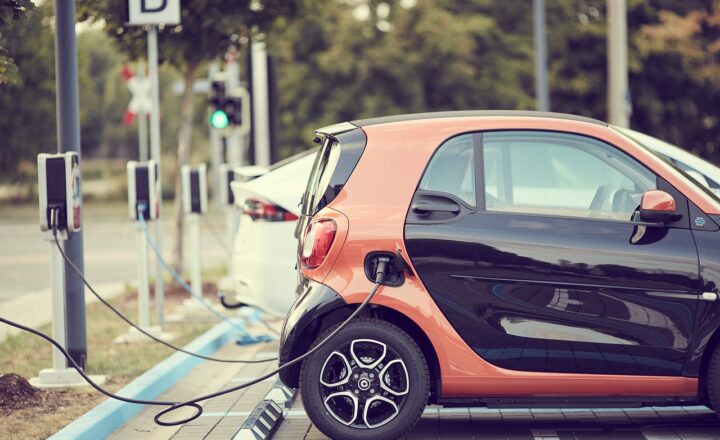
The world of transportation is undergoing a groundbreaking transformation. Electric vehicles (EVs) are no longer just a niche market; they have become a significant force on the roads worldwide. In recent years, technological advancements, growing environmental concerns, and shifting consumer preferences have converged to propel the rise of EVs. This article explores the reasons behind this surge and what it means for the future of mobility.
1. The Environmental Imperative
One of the most compelling reasons for the rapid adoption of electric vehicles is the environmental imperative. Traditional gasoline and diesel vehicles are major contributors to air pollution, greenhouse gas emissions, and climate change. EVs, on the other hand, produce zero tailpipe emissions, significantly reducing the environmental footprint of personal and public transportation.
With the increasing awareness of climate change’s impact, many consumers are seeking environmentally friendly alternatives. Governments around the globe are responding by setting ambitious targets to decrease carbon emissions and promoting cleaner technologies. As part of this initiative, several countries plan to phase out the sale of new internal combustion engine vehicles in the coming decades, further accelerating the transition to electric mobility.
2. Technological Advancements in Battery Technology
Recent advancements in battery technology are a pivotal factor in the electric vehicle revolution. Modern EV batteries now offer longer ranges, reduced charging times, and improved efficiency compared to their predecessors. Traditional concerns about battery life and performance have been addressed through innovations in lithium-ion technology, solid-state batteries, and fast-charging infrastructure.
This progression makes electric vehicles more practical for consumers. With many new models offering ranges exceeding 300 miles on a single charge, range anxiety (the fear of running out of battery) is becoming a thing of the past. Furthermore, the growing availability of charging stations across urban and rural areas is making EVs a more appealing option for everyday users.
3. Changing Consumer Preferences
Consumer preferences have also evolved dramatically in recent years. Many people are now more environmentally aware and are integrating their values into their purchasing decisions. Millennials and Gen Z drivers, in particular, show a strong inclination towards sustainability and innovation, leading them to consider electric vehicles over traditional combustion engines.
Moreover, the allure of advanced technology plays a significant role. Electric vehicles are often equipped with the latest gadgets and features, including enhanced connectivity, advanced driver-assistance systems (ADAS), and cutting-edge infotainment systems. This tech-savvy appeal attracts buyers looking for a modern and innovative driving experience.
4. Cost Savings in the Long Run
While the initial cost of purchasing an electric vehicle can be higher than that of comparable gasoline models, the long-term financial benefits often offset this difference. EV owners typically enjoy lower fuel costs, as electricity is generally cheaper than gasoline. Additionally, the maintenance costs of electric vehicles tend to be lower because they have fewer moving parts and do not require oil changes or exhaust system repairs.
Many governments offer incentives such as tax breaks, rebates, and grants to encourage the adoption of EVs, further sweetening the deal for consumers. Such financial incentives make electric vehicles increasingly attractive solutions for budget-conscious consumers.
5. Urban Policy Changes and Incentives
Cities worldwide have begun implementing policies to promote electric vehicle adoption. This includes providing designated lanes for EVs, allowing access to low-emission or congestion zones, and offering free or discounted parking. In some cases, cities also invest in public charging infrastructure, enhancing the convenience of owning an electric vehicle.
Furthermore, companies are recognizing the benefits of transitioning their fleets to electric vehicles, driven by aspirations to meet sustainability targets and issues regarding corporate social responsibility (CSR). As more businesses adopt EVs for deliveries and services, the visibility and acceptance of electric vehicles continue to grow.
6. The Rise of Global EV Manufacturing
In recent years, the landscape of electric vehicle manufacturing has become increasingly competitive. Major automakers, including Tesla, Ford, Volkswagen, and General Motors, have poured billions into developing electric vehicle lines. Emerging companies such as Rivian and Lucid Motors have also entered the market, further diversifying the options available to consumers.
This surge in production not only provides consumers with more choices but also encourages innovation through increased competition. New models with varying styles and price points are hitting the market, catering to diverse consumer preferences and enhancing overall appeal.
7. What Lies Ahead for Electric Vehicle Adoption?
The future of electric vehicles looks not just promising but inevitable. As technology continues to evolve, manufacturers will develop even better batteries, longer ranges, and improved performance. Wider acceptance of EVs by consumers and governments will likely lead to further enhancements in infrastructure and sales incentives.
Moreover, the sustainability movement is expected to evolve, with an increasing emphasis on reducing emissions throughout the supply chain, recycling, and sustainable manufacturing practices. Future innovations, such as vehicle-to-grid (V2G) technologies, promise to further integrate EVs into our energy systems, making them crucial players in energy management and distribution.
Ultimately, the electric vehicle revolution holds the potential for cleaner air, reduced greenhouse emissions, and a more sustainable future for transportation.
Conclusion
The rise of electric vehicles is more than just a trend; it reflects broader societal shifts towards sustainability, innovation, and efficiency. Through environmental consciousness, technological advancements, changing consumer behaviors, and supportive policies and incentives, EVs are positioned to take over our roads. As this movement gains momentum, the automotive landscape will likely continue to evolve, promising a cleaner and more sustainable future for generations to come.





